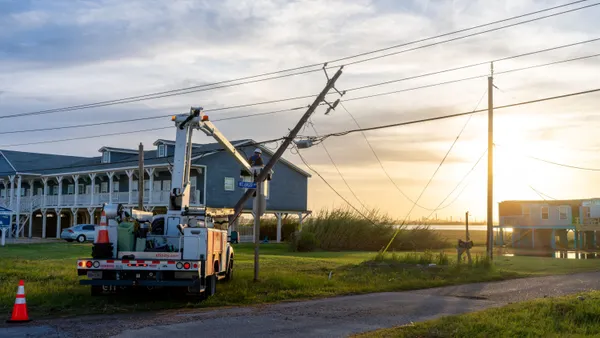Dive Brief:
- State regulators must decide sometime in March whether to approve Ray Hunt's plan to buy Oncor out of bankruptcy and allow for the reorganization of Energy Future Holdings, but the Fort Worth Star-Telegram reports the proposed tax structure has commissioners uncertain if there is sufficient benefit for ratepayers.
- Under the proposal, Hunt Consolidated would purchase Oncor and operate it as a real estate investment trust (REIT), and in doing so avoid federal income taxes involved in the deal.
- But at least one member of the Public Utility Commission of Texas says she cannot support the deal with such a large "windfall" for the company, opening up the discussion to a sharing agreement between the utility and ratepayers.
- Staff at the Public Utility Commission of Texas say the REIT arrangement would move $250 million annually from ratepayers to shareholders.
Dive Insight:
Time is running out for Texas regulators to approve or deny Hunt Consolidated's plan for Oncor and Energy Future Holdings, but it appears an idea central to the reorganization – operating the utility as a REIT – is giving some commissioners pause.
Under the proposal, Hunt said the first lien creditors of Texas Competitive Electric Holdings Company (TCEH), the merchant energy subsidiary of EFH, will receive TCEH's assets in a tax-free spinoff. That portion of the deal will satisfy approximately $25 billion in claims. Following that, the consortium would acquire EFH and its 80% ownership stake in Oncor.
The newly restructured REIT will be owned by the consortium and managed by Hunt, the company said, and will lease transmission and distribution assets to Oncor, who will operate the system on the REIT's behalf. A new operating company will be created and keep the Oncor name, with its headquarters remaining in Dallas.
The Fort Worth Star-Telegram reports Commissioner Brandy Marty Marquez, at a meeting last week, said the current deal is a non-starter for her.
“There’s something very lucrative and attractive about this particular structure, and I cannot be okay with a windfall on the back of those ratepayers," Marty Marquez said. "In my opinion, they’re not entitled to any of it.”
However, Marty Marquez said she was open to a possible sharing of savings between the utility and customers, an idea that appeared to have resonance with other regulators, in addition to boosting other ratepayer benefits.
Two other Commissioners were more reticent, though both said a sharing plan could be palatable for ratepayers.
Concerns have also been raised that the deal could raise bills for some customers. Sharyland Utilities, Hunt's smaller power provider, struggles with high rates in a rural service territory. Merging Sharyland with Oncor would lower rates for 50,000 Sharyland customers, but Oncor officials are wary of the impact on their own ratepayers.
Sharyland customers are already paying almost twice the state average in power prices, but Oncor is warning regulators that combining the two could raise rates for its current customers by 1.25%. “The bottom line is, while an Oncor and Sharyland combination may make sense at some point, the impact on Oncor and its customers should be carefully examined,” the utility said in a filing earlier this month.













